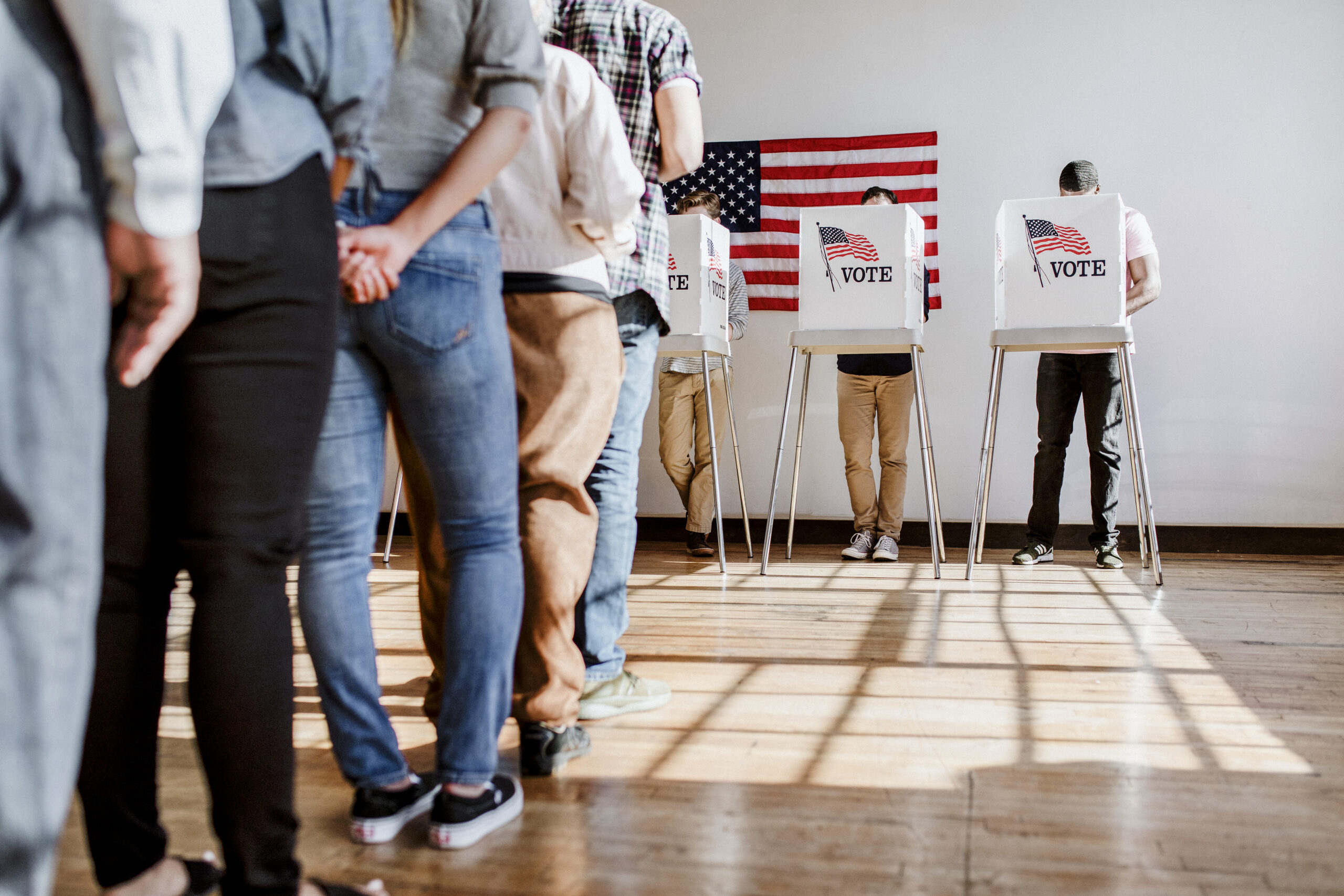
Guidelines for Local Election Offices
It is critical for states to protect voters and our election system from attempts by election deniers to interfere with our elections. In response to efforts to upend how elections are run at the state and local levels, officials can and should protect voters’ ability to participate in impartially administered elections. Voters should feel confident going to the polls and knowing that their votes will count because these rules exist and that most election officials are working hard to uphold the integrity of our elections.
That’s why we worked with the Brennan Center for Justice to develop four sets of guidelines for proper election administration in our states. Click the links below or scroll to see them as they become available.
Guides Outline Eligibility Requirements, Legal Behavior for Poll Watchers
June 26, 2024
Washington, D.C.—All Voting is Local and the Brennan Center for Justice at NYU Law have just released guides to the laws governing poll watchers’ conduct in eight battleground states. The guides cover Arizona, Florida, Georgia, Michigan, Nevada, Ohio, Pennsylvania, and Wisconsin. They’re meant to help election administrators prepare for the 2024 election and increase voters’ awareness of the legal limits on poll watchers’ behavior.
In all eight states:
- It’s illegal for poll watchers to intimidate or harass voters or election officials.
- It’s illegal for poll watchers to interact with voters in most instances.
- Poll watchers must follow the lawful orders of election workers.
Each guide explains the qualifications to be a poll watcher in that state, the poll watcher’s role, and illegal activities and conduct by poll watchers that could disrupt the election process.
Read the Memos
New Guidelines Help Election Officials Know Their Rights IN Protecting Against Voter Eligibility Challenges
June 10, 2024
Washington, D.C.—Today All Voting is Local and the Brennan Center for Justice at NYU Law and published guides for eight battleground states (Arizona, Florida, Georgia, Michigan, Nevada, Ohio, Pennsylvania, and Wisconsin) to provide voters, voter protection groups, election workers, and election officials with the multiple laws guarding against groundless challenges to voters’ eligibility. The guides explain the federal and state laws that place limits on how challenges can be made, by whom, and with what evidence, among other constraints.
The baseless challenge tactic was most recently seen in Michigan. The New York Times reported that an election clerk in Waterford improperly removed 1,000 voters from the town’s rolls after right-wing activists brought a mass challenge. The Michigan secretary of state intervened earlier this year to reinstate the voters.
Here are a few examples of the legal restrictions on challenges to voter eligibility:
- In Arizona, voters are presumed to be eligible to vote and a challenger must provide clear and convincing evidence that a voter is ineligible to vote.
- In Florida, all challenges must be made in writing under penalty of perjury and will only be accepted during a 30-day window before and on Election Day.
- In Nevada, challenges must be based on specific personal knowledge, meaning that the person making the challenge must have either experienced or observed the facts that are the basis of the challenge.
Read the Memos
Guidelines for Election Officials Outlining Protections Against Voter and Election Official Intimidation
May 14, 2024
Washington, D.C.—To help voters, election officials and workers, and law enforcement prepare for the 2024 elections, the Brennan Center for Justice at NYU Law and All Voting is Local published eight state-specific guides outlining the existing laws against intimidating voters, election officials, and election workers. Each guide explains the federal protections that apply to all states and provides a state-specific summary of the laws against the intimidation of voters, election officials, and election workers and the disruption of the voting process.
The guides cover the following states: Arizona, Florida, Georgia, Michigan, Nevada, Ohio, Pennsylvania, and Wisconsin. Each explains the state’s:
- Rules for protecting voters from frivolous challenges to their eligibility
- Prohibitions against intimidation of poll workers and election officials
- Constraints on rogue poll workers to prevent the intimidation of voters or the disruption of the voting process
- Limits on who can serve as poll watchers and what they can do in that role
- Restrictions on guns at polling places
- Prohibitions against door-to-door intimidation
Read the Memos
Updated guides for election officials in swing states; Laws they can use to stop rogue poll workers from interfering in elections
March 21, 2024
Washington, DC—Today the Brennan Center for Justice at NYU Law and All Voting is Local released guides for election officials in 8 swing states that break down the existing state and federal laws and legal protections that they can use to prevent or stop disruptions and/or interference by rogue poll workers in 2024.
The series covers Arizona, Florida, Georgia, Michigan, Nevada, Ohio, Pennsylvania, and Wisconsin. The guides were first issued in 2022 and have been updated for 2024 to reflect changes in state laws and guidance. In 2022, we saw reports indicating that individuals who subscribe to falsehoods about election processes were being recruited as poll workers across the country. Some election deniers were encouraging and training prospective poll workers to engage in improper conduct by, for example, tampering with election equipment or interfering with election administration. There are signs that the same recruitment is happening again in 2024. As the guides explain, each of the 8 states prohibits poll workers from intimidating, harassing, or improperly influencing voters and also limits the ability of poll workers to challenge voter eligibility.